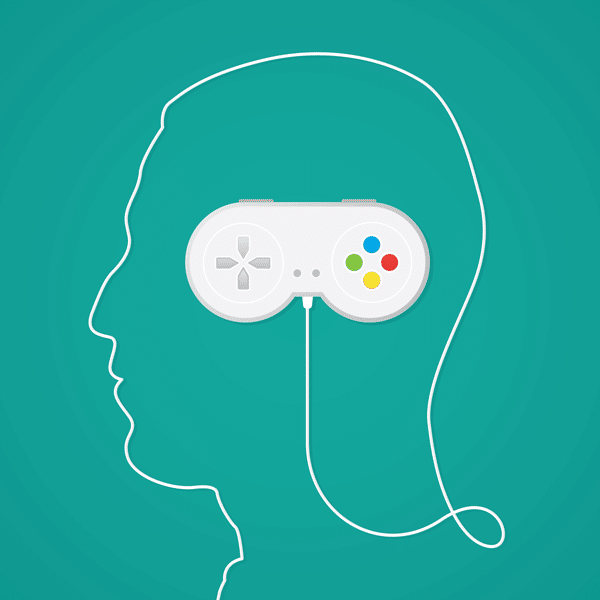Video Games May Help Your Child

Video Games May Help Your Child
It is estimated that consumers will spend $24 billion this year on video games. Can you blame them? Where else can you be a master sergeant, racecar diver, elf, mushroom crazy plumber, pro-golfer and bank robber within a few hours, and without the real-life dangers? Nowhere. Games play into our natural reward systems and make people feel competitive, excited and full of dopamine. But can all that time spent navigating a fantasy actually help your brain? Surprisingly, yes. However, the whole answer lies in how long you play and what type of game you play.
Your typical games, like Madden football and Halo, may do more harm than good because of the time spent playing and the lack of educational content. Most children spend over an hour a day playing video games, about 1.5 hours on the computer and a whopping four hours watching television. All that sitting leads to childhood obesity, and the fast paced games and erratic nature of children’s programming both have a positive correlation with ADHD. Research has also shown that children with Autism and ADHD are at a higher risk of becoming addicted to video games because of inattention (they average over two hours of video gaming per day).
Before you get the wrong idea, there is no reason to throw out your child’s gaming console. As with anything, moderation is the key.
But what about all the games designed to train your brain? Lumosity is probably the most well-known, but others such as Happy Neuron, Cogmed, Nintendo’s Brain Age and Neuronix all claim to boost mental capacity by simply solving puzzles and playing games. Unfortunately, University of Oslo researchers concluded that while individuals do improve their performance in many of these games, the skills do not transfer to better memory, coordination, processing speed, etc.
Disheartened? Don’t be. The games simply aren’t working on the right mechanism. Solving puzzles and playing games only functions on domain-specific mechanisms. Domain-specific means exactly what it sounds like; it is very specific, like a stop/go, yes/no, or right/wrong response. These are automated through years of practice and have a limited scope of applicability. However, there are ways to train your brain that can help beyond the game.
A study by Deakin University in Australia found that children who played certain interactive games on the Nintendo Wii had better hand-eye coordination and object motor skills. Interactive training involves various functional brain networks and works on domain-general mechanisms. In fact, some games have been shown to have a positive effect on children with mood disorders and high anxiety. Additionally, games based on puzzles and problem solving can improve spatial and reasoning skills. Many of these games work on sustained attention by having users respond to timed tasks and measuring performance. So, why not go to the heart of the matter?
Timing is a domain-general mechanism that has a profound effect on our daily lives, and has been associated with ADHD, dyslexia, autism and many developmental disorders. For more information, read our blog on domain-general vs domain-specific mechanisms. By working on domain-general mechanisms, researchers at Baylor were able to show that IM training led to more significant gains in reading fluency, comprehension and processing than traditional reading therapy alone. This type of neurotiming training has also proven effective on ADHD in both children and adults, which is a clear sign that the brain has the capacity to improve function at any age (more to come on adults in our next video game blog).
Research shows that engaging whole body movements in combination with cognitive tasks leads to overall better outcomes. Interactive Metronome® is a patented and unique training tool that challenges thinking and movement simultaneously, providing real-time millisecond feedback to help synchronize the body’s internal clock in just fifteen minutes a day, a few times a week. The American Academy of Pediatrics recommends children only get about two hours of screen time per day (all television, gaming and computer time combined), so make sure the time your child spends gaming is helping to train their developing brain for the future.
For more information on how IM training can help with reading fluency, speech and language, check out this interesting research. And if that isn’t enough, we can also help with developmental disorders like dyspraxia and Down syndrome.
Remember, it is all about using your time wisely.
Check out more on video games here…
